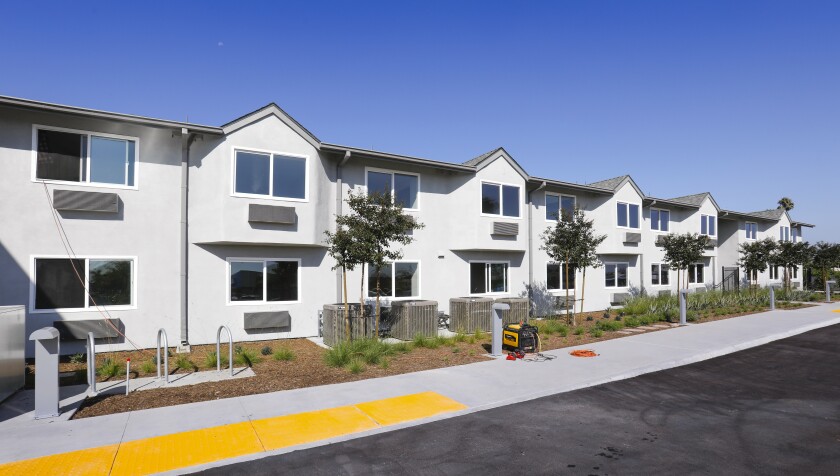Coastal Commission decision paves way to open South Bay rehab center

 (Howard Lipin/The San Diego Union-Tribune)
(Howard Lipin/The San Diego Union-Tribune)
The 81-bed housing program will provide treatment to residents dealing with substance-abuse issues. It is expected to open next year
SAN DIEGO —
A residential program to treat homeless low-level drug offenders may open in South Bay next year following a state Coastal Commission decision that sided with the city of San Diego over a challenge that has delayed its opening.
A lawsuit filed last year by Citizens for South Bay Coastal Access argued that the city should have sought a coastal development permit from the California Coastal Commission for the project, which has been in the works for more than two years. The group argued the project would eliminate low-cost coastal lodging by replacing a motel about two-and-a-half miles from the beach.
San Diego Superior Court Judge Joel Wohlfeil ruled in favor of the group in December 2018. Construction on the project continued, but contracts to operate the transitional housing program were delayed as the city appealed the decision.
The city also applied for and obtained a coastal development permit, but its approval was appealed by Citizens for South Bay Coastal Access. On Wednesday, the Coastal Commission upheld the permit.
In a news release Friday, San Diego City Attorney Mara Elliott applauded the decision while taking a shot at attorney Cory Briggs, who represented the group challenging the project.
“This program provides a lifeline to constituents who want to overcome addiction and return to society in a productive and meaningful way,” Elliott said. “Mr. Briggs’ legal maneuvers have succeeded only in delaying assistance for people who desperately need access to treatment and counseling, a path to sobriety, and a safe place to sleep at night.”
On Friday, Briggs said he did not have a comment on the decision.
The program is seen as an alternative to jail for low-level drug offenders, including many who are homeless, as part of the diversion program called San Diego Misdemeanants At-Risk Track, or SMART. The City Attorney’s Office spearhead the program in 2016 as a way of addressing the effects of Proposition 47, a state initiative that reduced simple drug possession and some other low-level property felonies to misdemeanors.
The SMART program already has 44 beds at independent living homes in the College Area and Logan Heights, and in 2017 the City Council agreed to spend about $11.2 million to buy and rehabilitate a Super 8 Motel at 1788 Palm Ave. in Egger Highlands, east of Imperial Beach. Another $3 million came from the Board of State and Community Corrections to help refurbish the old motel and add 81 beds to what would be called SMART on Palm.
The staff report that went before the commission Wednesday found the motel conversion would not significantly impact low-cost coastal lodging in the area.
The report noted that the city analysis of the project found the motel had been underused for years and had been closed for renovations for about a year before its purchase. Its conversion would not present a critical loss of overnight accommodations because there were several other nearby affordable options, the report stated.
In the appeal, Citizens for South Bay Coastal Access argued that the motel conversion would reduce low-cost visitor accommodations in the area by 25 percent. The Coastal Commission staff report stated the loss was 6.2 percent.
The report also noted that the new program would actually create housing for people who otherwise might be on the street rather than living by the coast.
“It is also important to note that the project will provide housing opportunities to a population that typically would not otherwise be able to afford coastal housing, thereby increasing coastal access for this population,” the report read.
The news release from the City Attorney’s Office also argued that the new project would be an improvement to the neighborhood.
“The SMART on Palm facility was previously a run-down Super 8 motel that was the site of frequent drug use and prostitution activities, and the subject of numerous calls for police and emergency services,” the release read.
The release also said the City Attorney’s Office is working on a timeline to open in 2020, but did not predict a month. In September, Elliott led city officials, police officers, staff members from Family Health Centers of San Diego and others on a tour of the building, which at the time was nearly complete.
 Pathways Drug Rehabilitation Luxury Addiction Treatment & Detox Center
Pathways Drug Rehabilitation Luxury Addiction Treatment & Detox Center


